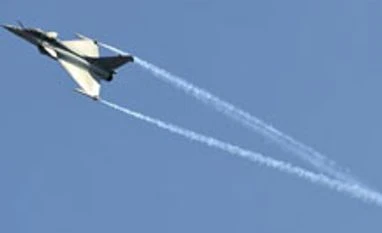India is insisting that France’s Dassault Aviation take full responsibility for the production of the aircraft at a state-ran facility in Bengaluru under the 2012 bid offer, defence ministry officials said.
France has said it will help Hindustan Aeronautics Ltd stick to delivery schedules, but that it cannot give guarantees for production of the aircraft made at a facility over which it has no administrative or expert control. Military experts say the deal could cost India $20 billion, double the original estimate, because of the benchmarking of aircraft prices.
The Rafale fighter beat the Swedish Gripen, the Russian MiG-35, the US-built F-18 and F-16 and, finally, the Eurofighter, in a decade-long selection process for a new Indian multi-role combat aircraft, as Dassault was the lowest bidder on up-front and lifecycle costs over 40 years.
But three years on, the sides are far from signing the contract and an Indian defence source said price negotiations were on hold until the issue of licensed production was resolved in line with the original request for proposals (RFP) floated by the Indian defence ministry.
"We are saying that the RFP has to be honoured totally, there can't be deviations," said the source. "Once the RFP aspects are done, only then can we sit down for price negotiations."
An "empowered" delegation from France, with the authority to make decisions on key points rather than refer them back to Paris, is expected to arrive shortly to work on the disputed issues, according to the source.
Among the talking points will be French concerns that Indian military procurement authorities may impose conditions on the manufacture of the Rafale in addition to guarantees already given to Hindustan Aeronautics.
Both sides are keen to reach a conclusion before Prime Minister Narendra Modi visits France in April.
Dassault and the French defence ministry declined to comment.
For the French, the deal would be a major boost for domestic defence manufacturing, with the first 18 Rafale planes built in France and the remaining 108 produced in India.
For the Indian Air Force, the planes are critical to arrest a decline in its operational preparedness, already down to 25 active fighter squadrons compared with a government approved strength of 42.
Half of the operational fleet are Mig-21 and MiG-27 planes due to retire beginning this year until 2024, a parliamentary defence committee said in a report last month, stressing the need for an early induction of new combat planes.
"The credibility of India (as an arms buyer) is already pretty shaky and it's going to get shakier (if they cancel the Rafale deal)," said Rahul Bedi, a defence analyst at IHS Jane's.
"It would be a big blow to the armed forces. The armed forces have been banking on the Rafale for a long time. They have said there is no plan B."
)